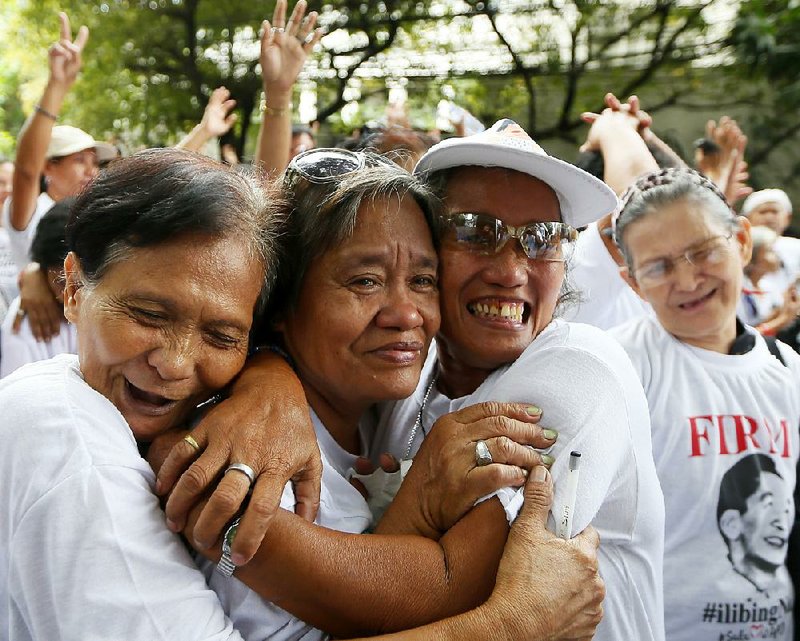MANILA, Philippines -- The Philippines' highest court ruled Tuesday that the dictator Ferdinand Marcos may be granted a hero's burial, resolving an issue in a country where passions over his brutal 20-year rule still run high.
A spokesman for the Supreme Court, Theodore Te, said the justices voted 9-5 to turn down a petition submitted by rights groups opposed to the reburial of Marcos, who died in 1989.
The decision clears the way for the country to carry out an order by President Rodrigo Duterte to bury Marcos in the national Cemetery of Heroes in Taguig City, a part of greater Manila.
In a narrow ruling that did not touch on the crimes or merits of the Marcos government, the court decided that "there is no law that prohibits the burial," Te said.
The Marcos family, which for years has lobbied for the reburial, applauded the decision, saying it would help the country move forward.
"It is our sincerest hope that this will lead the nation towards healing," Marcos' son, Ferdinand Marcos Jr., said in a statement. "I think this will be the beginning of bringing the country together."
The groups that petitioned to stop the burial, which included many people who were tortured under Marcos' rule, argued that the decision was part of an effort to whitewash an ugly period of history.
Sen. Risa Hontiveros said the decision would "effectively wipe the Marcos slate clean and negate the sacrifices of the thousands of brave souls who fought and suffered under the brutal dictatorship."
The court, she said, had "miserably failed the test of history and broken our hearts."
The Marcos government is believed to have killed more than 3,000 political opponents and tortured tens of thousands. A government commission estimated that members of the Marcos family and their associates plundered about $10 billion from the country while millions of Filipinos lived in dire poverty.
Marcos was ousted in a popular uprising in 1986 and died in the United States three years later. His body was repatriated in 1993 and has been stored in a refrigerated crypt in his hometown, Batac, in Ilocos Norte province.
His family has since achieved something of a political comeback. In addition to his son, a former senator who ran for vice president this year, the elder Marcos' widow, Imelda, is a member of Congress, and one of his daughters, Imee, is governor of Ilocos Norte.
Duterte has been a strong public supporter of the family and said he received a campaign contribution from Imee Marcos before this year's election. She has denied making a contribution.
Loretta Rosales, 77, a leftist politician who was tortured during martial law in the 1970s, said Duterte had been "very clear about his alliances."
The court ruling, she predicted, would be "closely linked to schemes that may be made to restore the Marcoses back to power."
Duterte's chief legal counsel, Salvador Panelo, said the ruling was expected, as the law accords military veterans like Ferdinand Marcos the right to be buried in the Cemetery of Heroes.
"It validates our theory that the law and the regulations are clear in the matter of burial of ex-presidents and soldiers," he said. "It's about time that the nation moves on and confront the more pressing concerns of the country rather than linger on an emotional issue that is as unproductive as it is divisive."
A Section on 11/09/2016
